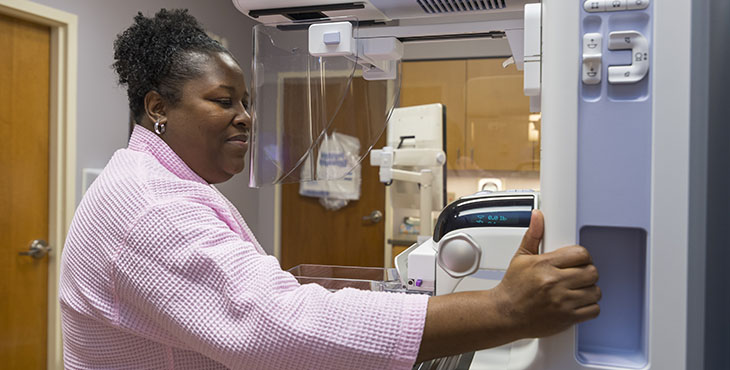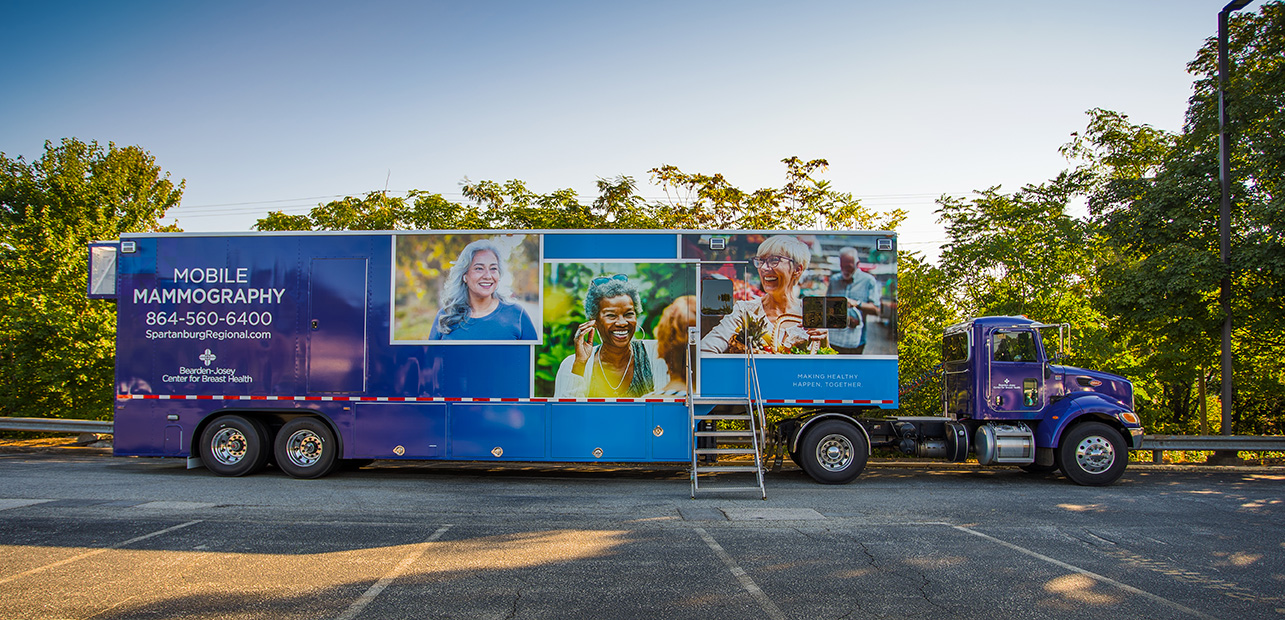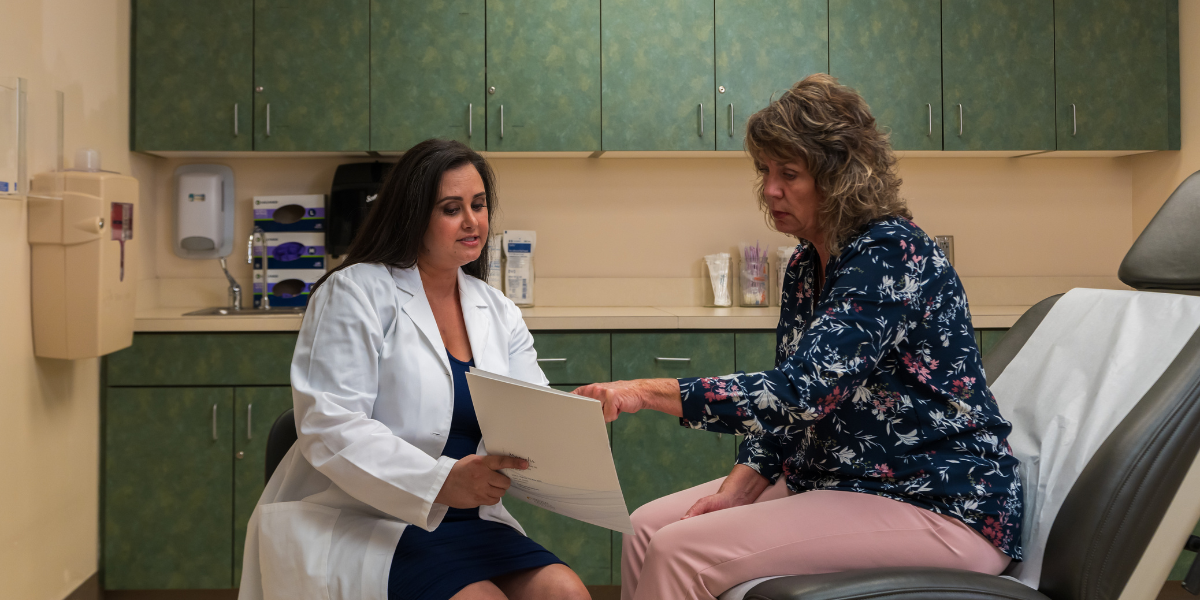
About
A breast health screening — or screening mammogram — is the one tool proven to increase breast cancer survival rates. Screening mammograms can detect tumors that self-exams or clinical breast exams may miss.
While most screenings don’t result in a cancer diagnosis, knowing your results can put your mind at ease. If you develop breast cancer, getting a yearly mammogram is a key to catching it in its earliest, most treatable stages. We also encourage you to perform monthly breast self-exams and to see your doctor each year for a clinical breast exam.
Every woman is at risk for breast cancer and your risk increases with age. According to the American College of Radiology, women with no symptoms of breast cancer should have a screening mammogram every year starting at age 40.
The American Cancer Society estimates 2,600 new cases of breast cancer will be diagnosed in South Carolina this year. Half of these new diagnoses will be in women who are age 61 or younger.
Screening Mammogram
Digital screening mammography uses digital radiographic images to examine your breast tissue and can help identify tumors that are too small to be felt during a physical exam or self-exam.
Compared with traditional X-ray film technology, digital mammography offers the following benefits:
- Produces clearer images
- Reduces exposure to radiation
- Can be read immediately by skilled radiologists using computer-aided detection software, reducing the need for retests
- Because digital images are stored on a computer, they are always available when needed for consultation and comparison
We also use mammogram pads on our equipment to make mammograms more comfortable, and to provide cushion during breast compression.
3D Mammography
Sometimes, a mammography reveals dense breast tissue, which makes it difficult for a radiologist to see cancer. Approximately 40% of women have dense breast tissue, which means the breast has a lot of fibrous or glandular tissue and not much fat.
Bearden-Josey offers a 3D mammogram technology called tomosynthesis at some locations. The technology will reduce the number of women who require additional testing and will increase cancer detection rates in women with dense breast tissue.
Tomosynthesis is like a CT scan in that it takes image “slices” of the breast so the radiologist can visualize tissue better than with a 2D image. Tomosynthesis can help determine if breast tissue is abnormal or just overlapping, which is common in women with dense breast tissue.
Mammography Assistance Program
If you are concerned you cannot afford a mammogram, our Mammography Assistance Program can help.
Our Mammography Assistance Program provides free and reduced-cost mammography to women who are uninsured or underinsured, and would otherwise be unable to afford this life-saving screening. The Mammography Assistance Program, which began in 2009 with a grant from the Susan G. Komen organization, has funded more than $650,000 of care in Spartanburg, Union and Cherokee counties. Call 864-560-6144 to see if you qualify.
Mobile Mammography
Mobile mammography makes life-saving mammograms available to women who may not have access to care because they lack time, transportation, insurance coverage or awareness. Our mobile mammography unit conducts onsite screenings at area businesses, health fairs, churches and community centers. Learn more about our mobile mammography unit.













